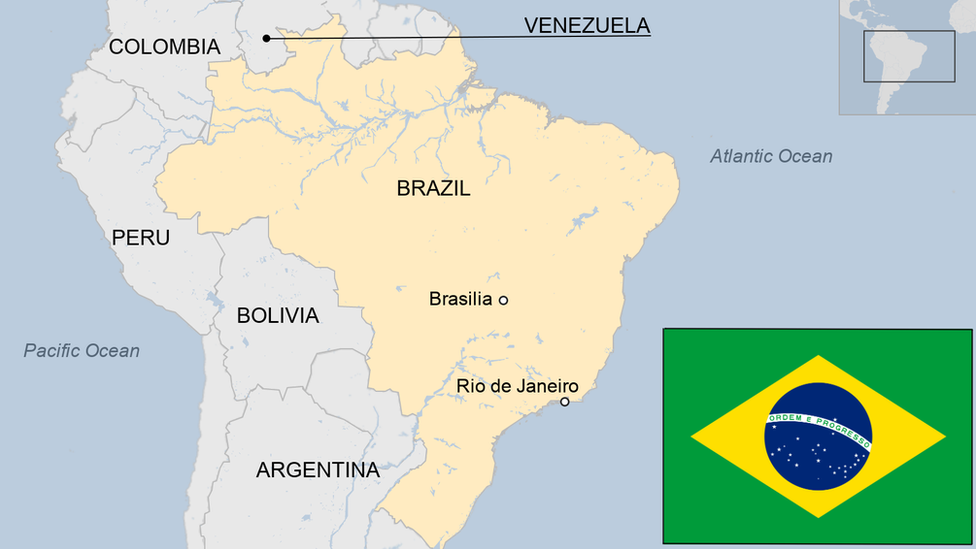Brazil fire prompts World Cup safety legislation concern
- Published
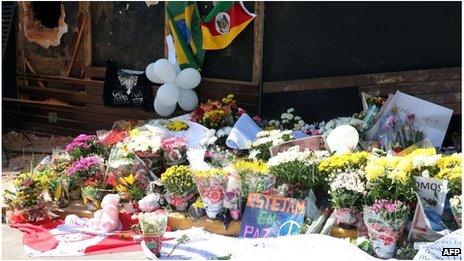
Many people in the city of Santa Maria have lost friends or relatives in Sunday's blaze
Brazil's Congress is to be asked to enact a new federal bill in an attempt to strengthen safety regulations ahead of the 2014 World Cup.
The move comes after the blaze which killed more than 230 people in a nightclub and prompted a national debate about existing legislation.
The new bill would cover the licensing of clubs and mass events, as well as fire prevention measures.
It would take precedence over the many state and city laws that exist.
Sunday's tragedy in the southern city of Santa Maria has prompted widespread domestic concern about Brazil's ability to host major sporting tournaments in the next four years. The 2016 Olympics are to take place in Rio de Janeiro.
The disaster also led the Congress to set up a working group on Tuesday.
"The World Cup surely makes this issue even more urgent," congressman Paulo Pimenta, who will coordinate the effort to draw up new proposals, told BBC Brasil.
"We will work fast so the new laws can be voted on before the tournament."
Brazil's football legend Pele added his voice to calls for action, tweeting that the government "must make event safety and security a priority, external".
The high number of deaths in Santa Maria is being blamed on the stampede as the blaze started, with many young clubbers not being able to escape through the only available exit.
A large number of bodies was found trapped in the club's toilets, which were possibly mistaken for an exit.
According to Mr Pimenta, the new federal legislation will also establish nationwide rules about exit signs and emergency lights.
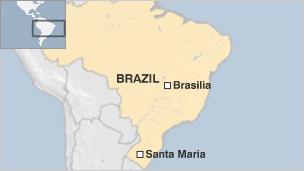
One of the club's owners is said to have confirmed that they were in the process of renewing its licence to operate, and that its fire safety certificate had expired last year.
Mr Pimenta said that it would be difficult to toughen the current wide array of local laws and a national response would be the best way forward.
In his home state - Rio Grande do Sul, where Santa Maria is located - he said there were different inspectors responsible for checking safety rules in businesses in 400 cities, and they operated on different standards.
He also suggested that some companies and club owners took into account how strictly the rules were enforced when choosing venues.
"If legislation in one place requires less rigid measures against fire, for instance, it becomes cheaper to stage an event there and they will opt for that."
President Dilma Rousseff, who had an emotional meeting with bereaved relatives, has also called for a stricter stance on safety rules across the country.
"I have the conviction that what happened in Santa Maria will be an example for all local authorities, prompting them to come up with an adequate response," she told 5,000 mayors from across Brazil on Monday.
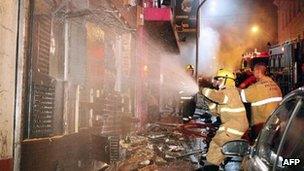
Firefighters try to put out the fire at the Kiss club in Santa Maria on Sunday
So far, mayors from at least eight major Brazilian cities, including seven of the 12 World Cup host cities, have announced measures aimed at avoiding similar tragedies.
In Sao Paulo, Brazil's largest city, Mayor Fernando Haddad said officials would examine local laws about safety standards before working out what changes were needed.
Other mayors have opted for a tougher approach towards businesses that do not comply, while the Brazilian media are also joining in the pressure for change.
On its Facebook page, leading newspaper Estado de Sao Paulo asked its followers to name clubs they considered unsafe, so that journalists could inspect them and report on any failings.
However, many in Brazil are sceptical about the effects of new laws on safety standards.
They say other recent national tragedies - such as the floods which killed hundreds of people in the state of Rio de Janeiro in 2011 - also prompted discussions in the Congress about new legislation and preventive measures.

- Published29 January 2013
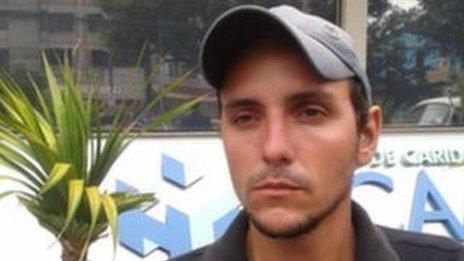
- Published28 January 2013
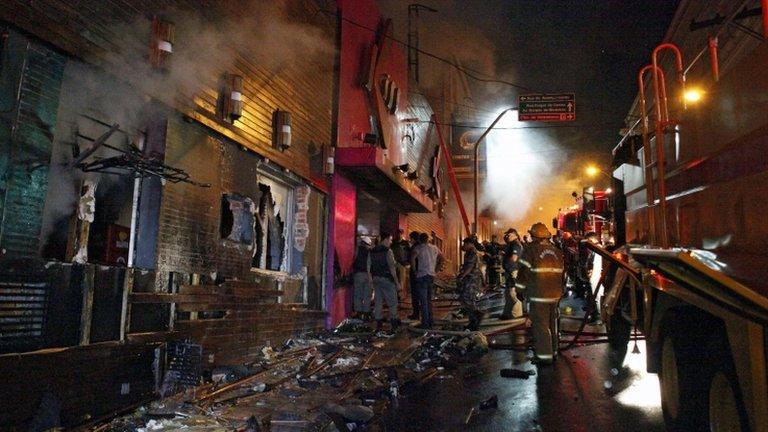
- Published28 January 2013
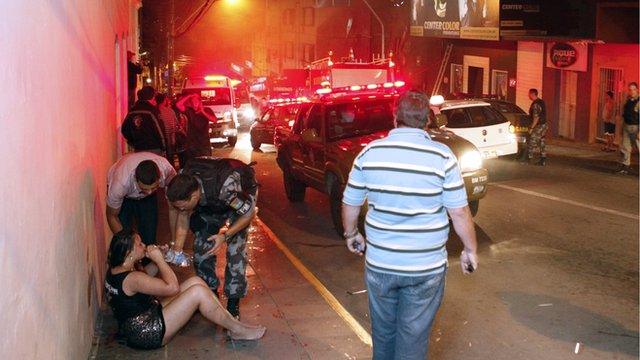
- Published28 January 2013
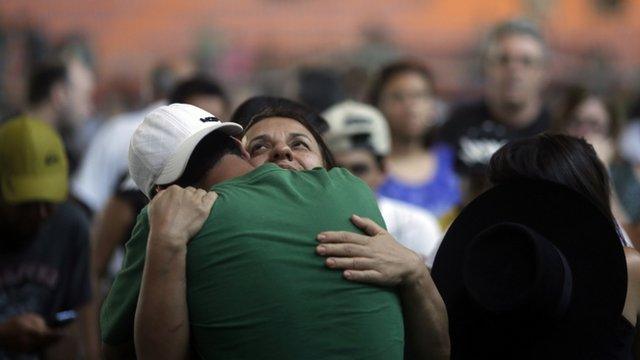
- Published28 January 2013
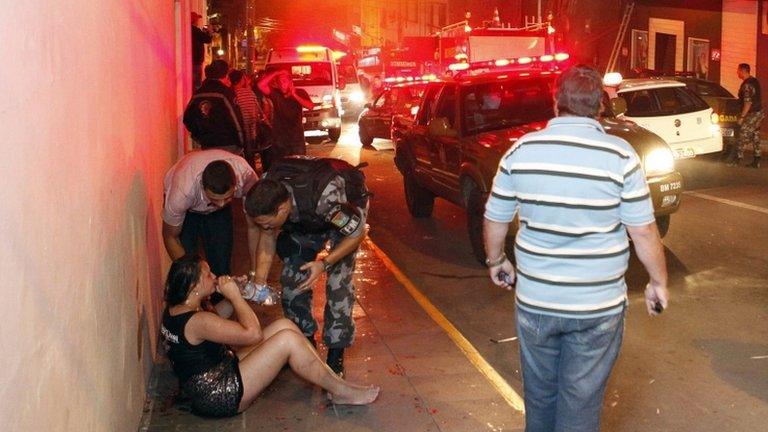
- Published2 June 2023
